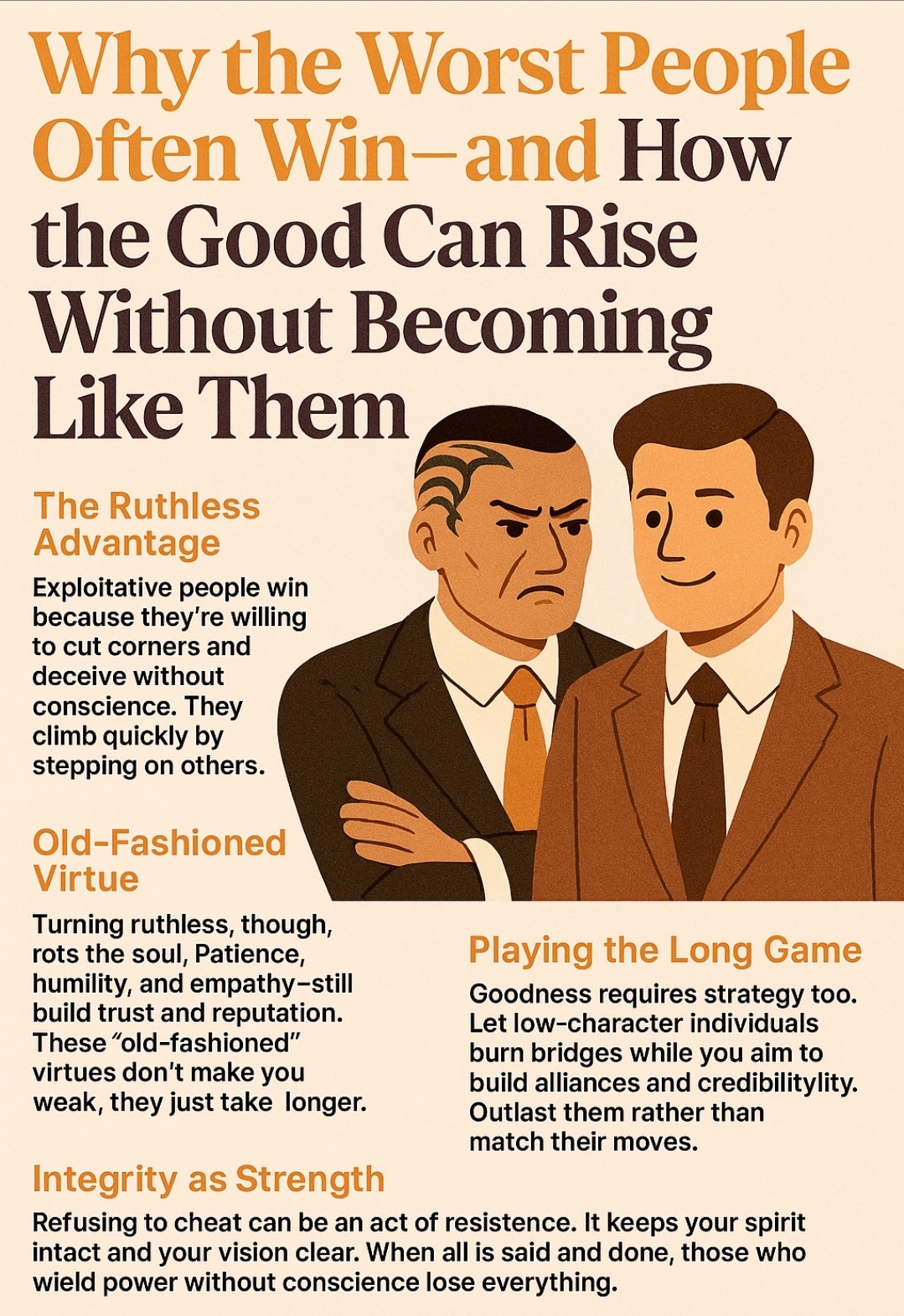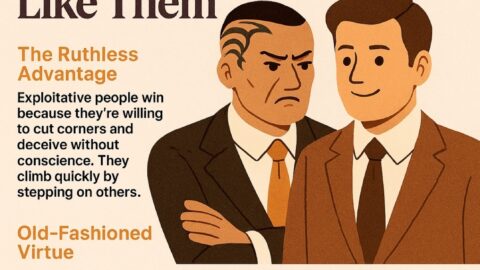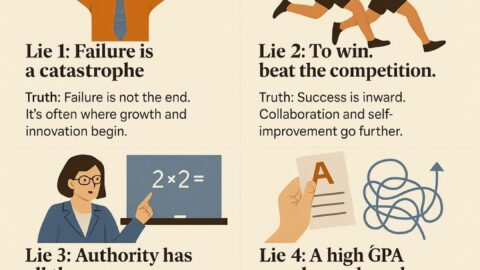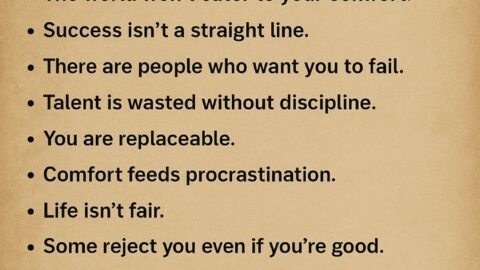Introduction
We’ve all asked the same haunting question: Why do liars, manipulators, and betrayers so often succeed—while good, honest people struggle? From corporate boardrooms to global politics, it seems the ruthless rise while the kind get trampled. But this paradox isn’t just about chance or corruption. Psychology, history, and social systems reveal deeper patterns that explain why toxic personalities thrive—and how integrity, properly armed, can still overcome them.
The Dark Triad Advantage
In 2005, psychologists identified the Dark Triad: narcissism, Machiavellianism, and psychopathy.
- Narcissists thrive on confidence and projection of power.
- Machiavellians master manipulation and political maneuvering.
- Psychopaths are unburdened by guilt, empathy, or fear.
In competitive systems—politics, corporations, social media—these traits can be assets, not liabilities. In a world driven by visibility, dominance, and bold decision-making, confidence is mistaken for competence.
Evolution’s Ruthless Logic
Human groups evolved hierarchically. Dominance often determined access to resources, survival, and leadership. Nature doesn’t always reward morality; it rewards effectiveness. Aggression and cunning sometimes work better than empathy when survival is at stake.
The Illusion of Competence
The Halo Effect explains how charisma and surface success blind us. Arrogance is reframed as strength, cruelty as vision, and dominance as direction. Many people are drawn to those who act without hesitation, confusing decisiveness with wisdom.
Systems Built to Reward Toxicity
Our systems are not “broken”—they may be working exactly as designed.
- Corporations prioritize results and profits, often ignoring ethics.
- Politics rewards those who stir controversy and command attention.
- Social media algorithms push outrage because attention is currency.
In this environment, manipulation isn’t punished—it’s incentivized.
The Masks They Wear
Machiavelli wrote it is better to appear virtuous than to be virtuous. Toxic individuals master image crafting:
- They simulate empathy when useful.
- They build alliances based on utility, not trust.
- They wear the “mask of sanity,” charming in public while ruthless in private.
This illusion of virtue shields them while they consolidate power.
Gaslighting and Silence
Gaslighting—the psychological manipulation that makes others doubt themselves—is central to their power. Yet they don’t rise alone. As Philip Zimbardo’s “Lucifer Effect” shows, evil often thrives through the silence of bystanders. Fear, conformity, and passivity allow toxic people to maintain control.
Divide and Rule
By exploiting division, leaders fragment unity and maintain dominance. Dictators, toxic bosses, and abusive partners all use this tactic. When people are divided, they seek authority to restore order—often turning to the very person who created the chaos.
Why Good People Lose
Empathy and conscience, while virtues, can become vulnerabilities in ruthless systems. Good people:
- Second-guess themselves and internalize dysfunction.
- Burn out from over-giving (Adam Grant’s “Giver burnout”).
- Hesitate while toxic personalities exude false certainty.
As Bertrand Russell put it: “The trouble with the world is that the stupid are cocksure and the intelligent are full of doubt.”
The Bias Against Integrity
Institutions punish whistleblowers, silence truth-tellers, and reward obedience over originality. Ethical individuals shrink their voices to “fit in,” compromising values just to survive. As Krishnamurti observed: “It is no measure of health to be well adjusted to a profoundly sick society.”
The Path to True Power
The antidote isn’t to become like them—it’s to reclaim inner authority.
- Strategic empathy: understanding without self-sacrifice.
- Confident humility: acting decisively while acknowledging limits.
- Sacred boundaries: protecting values, not walling off the world.
As Epictetus said: “No man is free who is not master of himself.”
Why the “Winners” Fall
Research shows manipulative leaders rise quickly but fall just as fast. Their power erodes trust, and fear-based systems collapse from within. By contrast, true power endures when built on inspiration, clarity, and moral courage.
Victor Frankl, Holocaust survivor and psychiatrist, put it best: “Everything can be taken from a man but one thing: the last of the human freedoms—to choose one’s attitude in any given set of circumstances.”
How to Rise Without Corruption
- Stop playing their game: Respond with calm instead of reactivity.
- Redefine success: Align with inner values, not external applause.
- Lead in your own way: Influence begins in small, quiet acts of integrity.
Transformations rarely start from the top—they begin with ordinary people refusing to compromise their truth.
Conclusion: Conscious Power
The worst people don’t win because they’re strong—they win because others forget their own power. Their biggest lie is that kindness is weakness and integrity is naive. But history proves otherwise.
When you choose integrity over image, clarity over confusion, courage over comfort—you break the spell. You don’t need their approval, their stage, or their rules to lead.
In the end, the true winners are those who remain uncorrupted, unbroken, and unafraid. The world doesn’t need more domination. It needs conscious power—and that begins with you.
Point by Point: Why Bad People Often Win
1. The Paradox of Power
- Many people who lie, manipulate, or betray others don’t just survive—they thrive.
- These individuals often rise to the top in workplaces, politics, and history.
2. The Dark Triad
- Psychologists identified three traits—narcissism, Machiavellianism, psychopathy—that form a powerful mix.
- Narcissists project confidence; Machiavellians excel at manipulation; psychopaths lack guilt or fear.
- In competitive environments, these traits act as assets, not disadvantages.
3. Evolutionary Roots
- Hierarchical groups favored dominance for survival.
- Aggression, intimidation, and deception historically brought access to resources and leadership roles.
- Nature rewards effectiveness, not morality.
4. The Halo Effect
- When someone appears confident or successful, people wrongly assume competence in other areas.
- Arrogance is mistaken for leadership, cruelty reframed as strength.
- Humans are drawn to decisiveness—even when it hides toxicity.
5. Systems that Protect Bad Behavior
- Corporations, politics, and social media often reward results over ethics.
- Outrage garners attention, and attention equals power in today’s culture.
- Algorithms and media feed into this dynamic.
6. Manipulation of Perception
- Inspired by Machiavelli: it’s better to appear virtuous than to be virtuous.
- Toxic individuals craft images, fake empathy, and build alliances based on utility, not trust.
- Psychopaths simulate emotions as tools of control.
7. Gaslighting
- Toxic leaders manipulate others into doubting their own memory or judgment.
- This shifts blame, erases accountability, and deepens control.
8. Complicity of the Many
- Philip Zimbardo’s “Lucifer Effect”: good people enable evil out of fear or passivity.
- Solomon Asch’s conformity experiments show how group pressure silences truth.
- Silence and compliance keep toxic leaders in power.
9. Divide and Rule
- Leaders exploit division to weaken unity and strengthen control.
- By sowing discord, they present themselves as the solution to the chaos they created.
10. Psychological Barriers to Resistance
- Just World Hypothesis: people rationalize injustice to preserve the belief that the world is fair.
- Fear: fear of job loss, social backlash, or conflict keeps people silent.
- Manipulators prey on these fears—granting approval selectively, threatening isolation, disturbing peace.
11. Why Good People Lose
- Empathy, while a strength, becomes vulnerability in ruthless systems.
- Ethical individuals internalize dysfunction, blame themselves, and burn out.
- Adam Grant’s research: “givers” without boundaries get exploited, while strategic givers succeed.
- Integrity breeds self-doubt, while toxic personalities radiate false certainty.
12. Systemic Bias Against Integrity
- Institutions reward obedience, punish whistleblowers, and discourage originality.
- Krishnamurti: “It is no measure of health to be well adjusted to a profoundly sick society.”
- Good people compromise values to “fit in,” losing their strength.
13. The Path to Real Power
- Inner authority is key: strength without corruption.
- Strategic empathy, confident humility, and sacred boundaries are essential.
- Epictetus: “No man is free who is not master of himself.”
14. The Truth About “Winners”
- Manipulators rise fast but fall hard—their power is built on fear, not loyalty.
- True power endures through inspiration, not domination.
- Victor Frankl’s insight: the last human freedom is to choose one’s attitude.
15. How to Resist and Rise
- Stop playing their game: respond calmly, not reactively.
- Redefine success: measure by internal alignment, not external applause.
- Lead your own way: leadership begins in small acts of integrity.
- Transformations begin not from the top, but with ordinary people refusing to comply.
16. Final Revelation
- Toxic leaders win only when we believe they’re stronger than us.
- Integrity is not weakness; kindness is not submission.
- By refusing to become what you hate, you change the rules.
- Real power = conscious power: courage, clarity, and truth in action.






